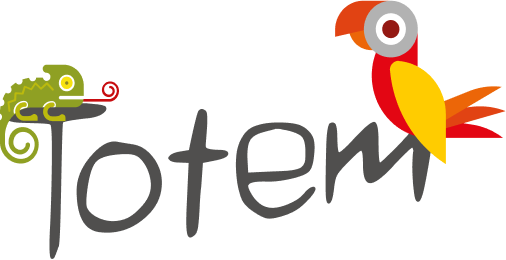My testimonial:
I put Totem the game to the test at the university: my feedback on this intense, new and inclusive experience!
As a teacher in the Faculty of Economics and Management at Artois University, I had the opportunity to try out Totem the game with my students, studying various different courses at the university. Centred around positive communication, Totem is a personal development game enabling everyone to discover, through the perspective of those around them, their main strengths and qualities.
Get to know yourself better, but also others at the university!
What image are you giving off? How do others see you? Like everyone else, these questions are very likely to have crossed your mind. We all need to understand how others see us and get to know ourselves better, in order to identify our assets and what we can bring to a group beyond our knowledge and technical skills. When the time comes to start looking for an internship, work placement or even joining the workforce, our students are in desperate need! Totem the game opens a window to the self and encourages reflexivity, particularly through “feedback” from the other players. Each participant receives “Animal” cards from the other players, associated with various strengths, as well as “Quality” cards. At the end of the game, following discussion and debate supported by the cards, each player leaves with a Totem made up of their strength and dominant quality according to the others.
 |
We often hear that a picture is worth a thousand words. Totem’s playing cards are artefacts which sustain and anchor discussions while establishing individual qualities and strengths. |
As well as being an interesting tool for preparing our students for the perilous exercise of recruitment interviews, the totem and surrounding discussions on the strengths and qualities of the player form a precious resource in moments of doubt where self confidence is lacking!
When playing by the original rules, the necessity of knowing the other players can be a major constraint, making the game more or less relevant and easy to use according to the context. In fact, the better individuals know each other, the wider the choice of cards to distribute amongst one another, and the discussions which ensue can be very rich. To get around this issue, it’s easy to imagine repurposing the game, for example, for hosting an ice breaker activity at the beginning of the year for the students to get to know each other, or even when they need to work together on a project, simply by inviting each member of the group to identify a quality or personal strength which could be useful to the team. Beyond self-exposure, Totem is therefore also an aid for getting to know others and revealing complementary skills and possible synergies in a team.
Preparing our students for more inclusive management
Totem has this ability to put everyone in a good mood while bringing about positive and kind hearted interactions. At a time when the emphasis is on the need for increasing emotional awareness among our students, who are tomorrow’s workforce, and in the interest of putting in place inclusive organisational contexts, Totem can be a tool and a lever for recognition and validation of what makes us all unique, and as a result, a true indicator and sign of diversity. The game is also interesting for training and teaching on management. It allows for work on representation or building a shared vision of a job or profession, for instance, by inviting students to jointly draw up the profile of their ideal manager. It’s a potential teaching tool for working on different dimensions of team management. This way, through it’s narrative element (the players are invited to justify, with the help of memories or anecdotes, the card they have chosen for the others), the game can be effective for working on eloquence and storytelling. In this respect, the game is useful for developing the capacity to identify qualities and skills among the others, and above all, being able to discuss them. Giving compliments is a skill, and the students, just like anyone else, sometimes find it difficult to structure and verbalise ideas likely to trigger an emotional reaction. With Totem, players at times experience intense emotions when receiving cards and the associated compliments, but also when they explain the chosen card they’ve selected for another player. Totem is therefore also of interest when tackling the place of emotions in the professional world and developing students’ emotional intelligence.






